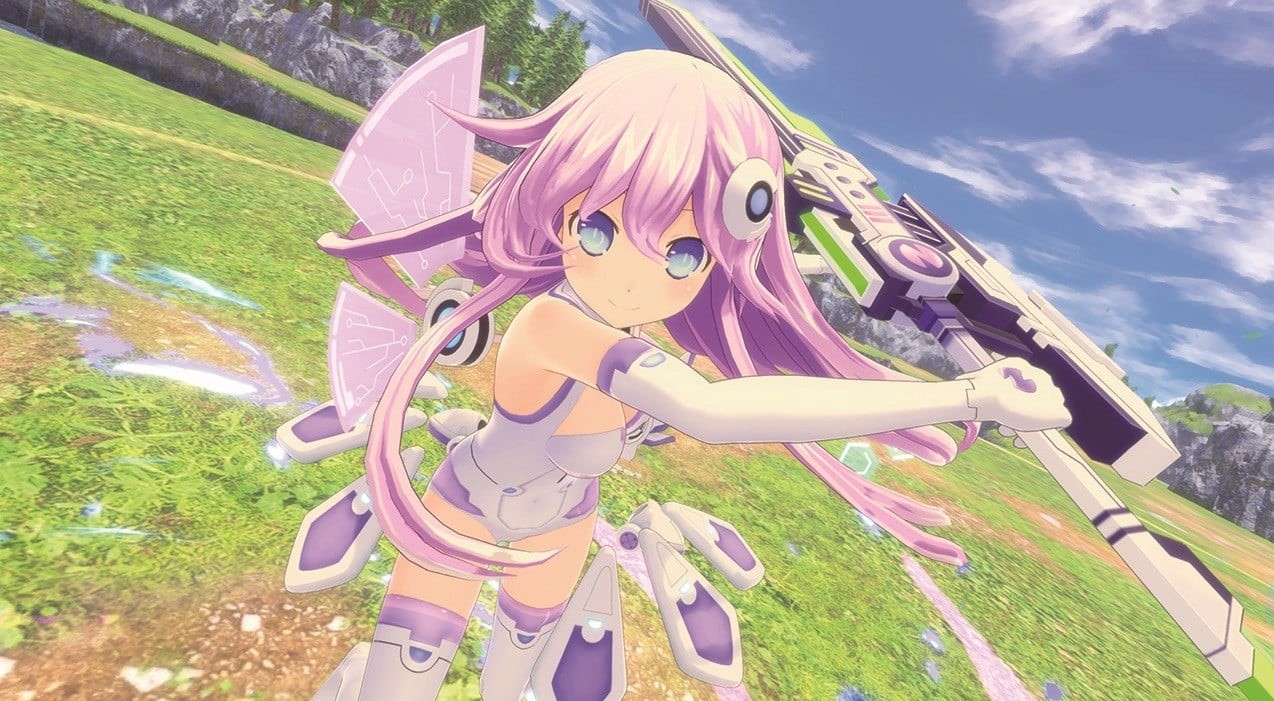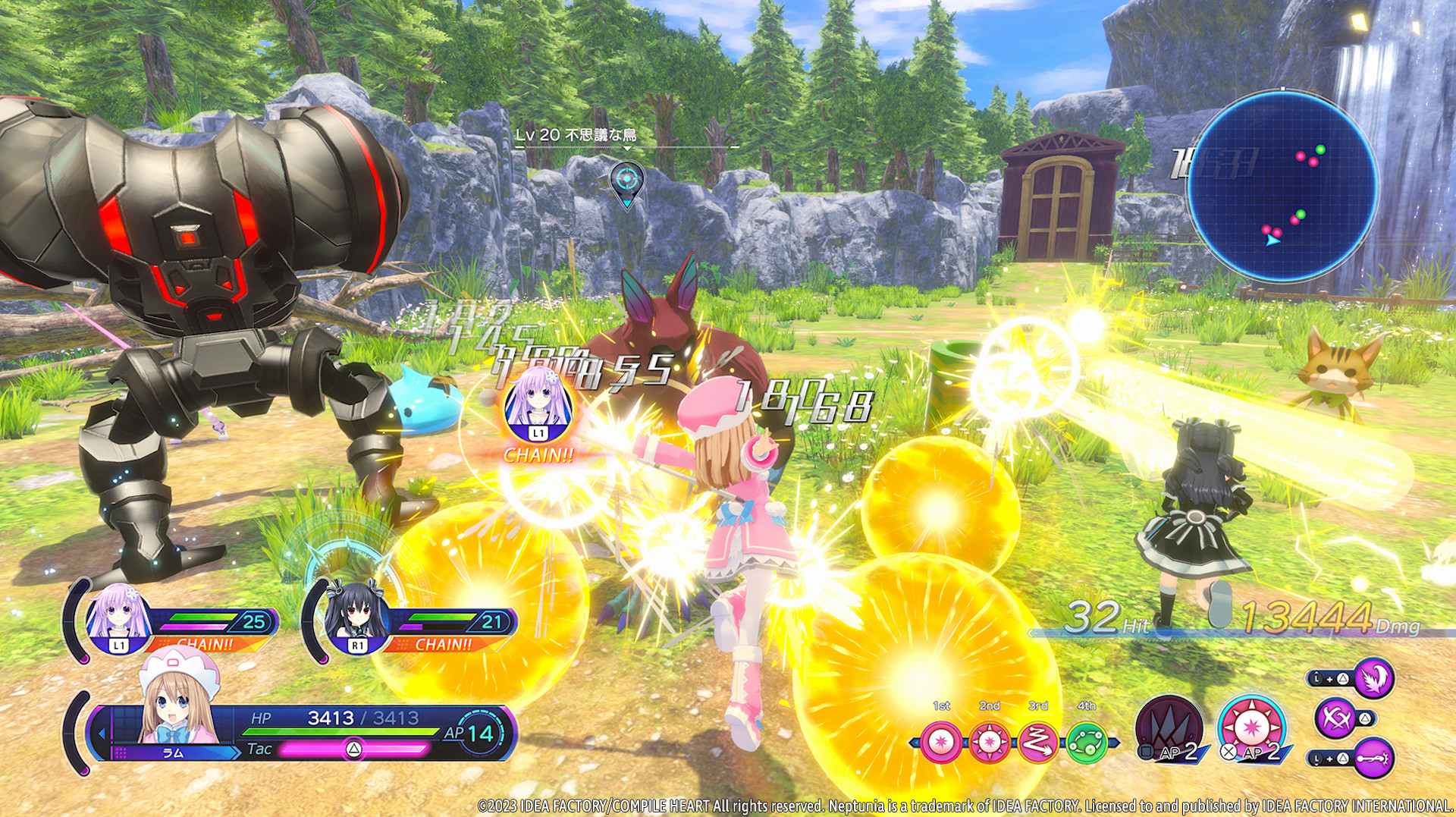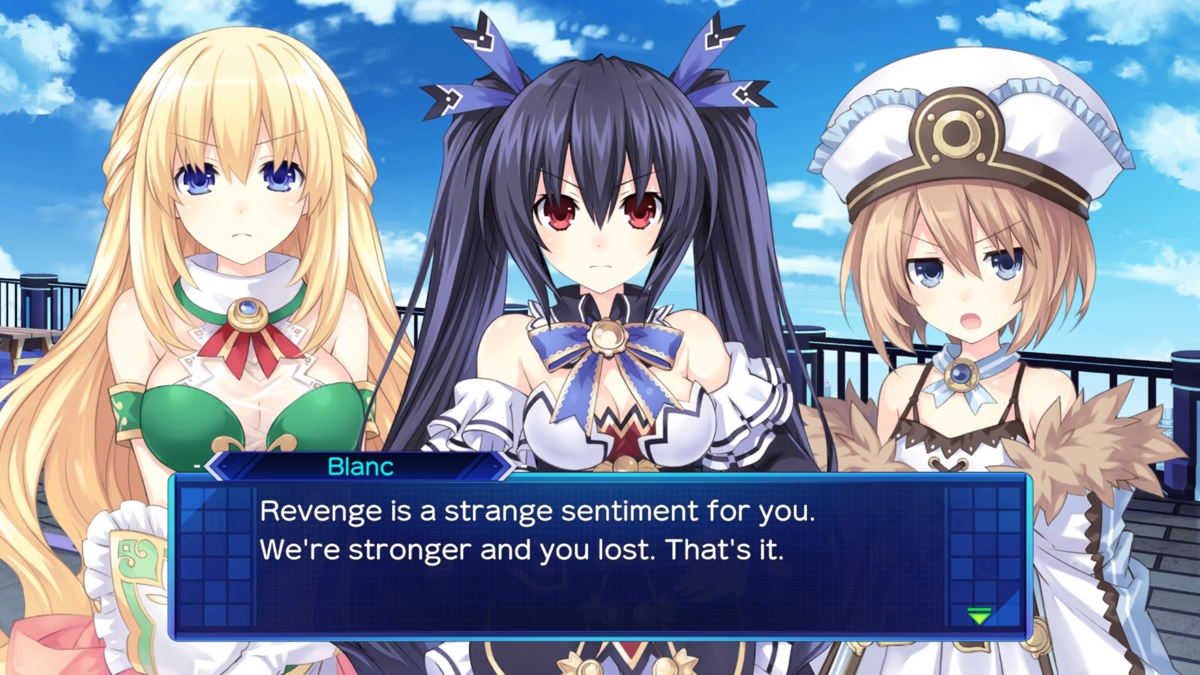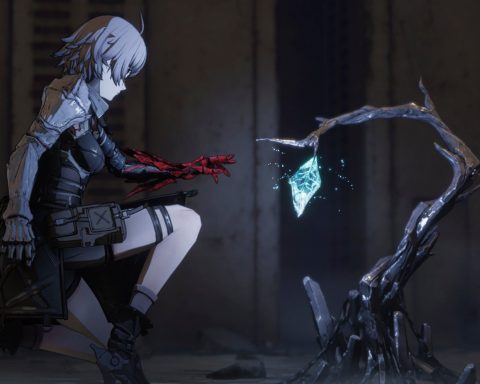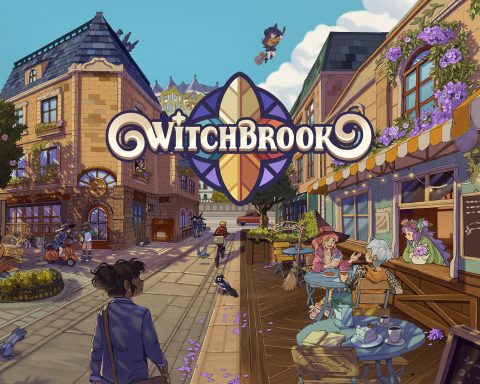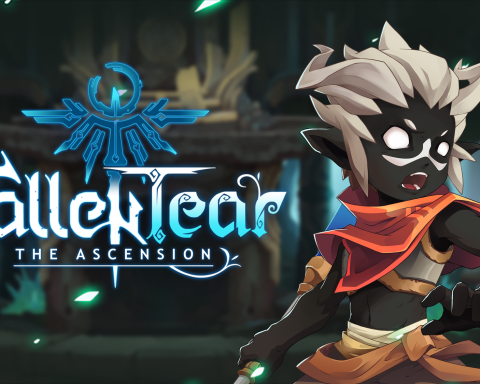I don’t really understand why Idea Factory continues to experiment with action combat systems. Action combat systems are far more resource intensive to get right, and for a company producing JRPGs on a very small budget, it seems counterintuitive. Recent Neptunia titles, including Neptunia Virtual Stars and Cyberdimension Neptunia, have really suffered for it. Those games were fine in their own way, but not pushing to the upper echelons of the genre like the turn-based JRPGs did Unfortunately, Neptunia: Sisters VS Sisters is much the same situation. At least, as far as the combat goes. Thankfully the narrative is a blistering return to form for the series.
It’s truly strange that they would take the action-JRPG route with Sisters VS Sisters in particular, because the last time that Nepgear (the little sister of the series’ protagonist, Neptune) was the nominal lead in a game, it was the second Hyperdimension Neptunia (mk2) and that, to me, remains the most enjoyable game in the entire series. It stands out precisely because Idea Factory got so much right with the turn-based combat system. It wasn’t overly complex, didn’t get bogged down in systems, and simply played out like a nice, clean, classical turn-based JRPG. Sisters VS Sisters, meanwhile, is a clunky mess in combat. Combos rapidly devolve into clumsy button-mashing affairs, and the AI is barely functional (in terms of both the enemies and the assistance). Perhaps most significantly, the defensive options are severely limited, given the extreme delay between pressing the button, and either raising shields or dodging. This is an even bigger problem when you consider that enemy attacks can trap characters in damage combos. A group of three or four common enemies can be more devastating than the toughest of bosses for this reason.
Idea Factory, please listen here: there isn’t a single person in your audience that has an issue with the classical approach to JRPG combat. You’re only ever going to appeal to the most niche of JRPG audiences, and I assure you, they have no problem with turn-based action. The likes of Persona, SMT, Atelier, Fire Emblem and others continue to be perfectly comfortable leveraging a turn-based system because their developers understand that. The developers of One Piece Odyssey from earlier in the year also realised that a turn-based system was a clever way to mask budgetary limitations. It works. People enjoy it. You’re only letting yourselves down (badly) by struggling to push out these action games instead.
It’s particularly frustrating when you consider that outside of the combat, Sisters VS Sisters is a spot-on return to message and form for the series. Initially, Neptunia was designed as a satire of the dynamics of the video game industry. The characters were all based on popular console manufacturers or game developers, and they’d have their “console wars” and battle as gods over “shares” to dominate the world and win the love of all the common people. Underneath that was always some surprisingly scathing humour at the expense of nerd culture and various key fan trends. I say “surprisingly” because there has always been the risk that these otaku fandoms wake up and realise that they’re the target of the joke and subsequently walk away from the series. Thankfully for Idea Factory, so far they have seemed to be happy to roll with the punches. You’d have to assume that’s because the hyperactive characters at the core of the series deliver the humour with such high energy that it ends up being charming.
Some of the more recent entries, however, seem to have lost sight of that successful core. Instead, they seemed like efforts to build characters up as distinct entities from the anthropomorphised video game industry punchlines. The wildly in-your-face humour was always there, but the broader scope of the characterisation had left the series in danger of becoming unfocused and losing something that, brash and often crass as it was, gave it an intelligent edge to engage with.
Sisters VS Sisters brings the storytelling right back to the series’ roots, and is stronger for it. This time around the girls face an all-new threat: mobile gaming. Communities are so glued to their phones playing those games that they’ve got no time for their goddesses (consoles) any more. Throw in some jokes about shut-ins, and the mindless obsession with content that runs through this industry, and you’ve got a game that, again, works both as humour and a commentary. “It’s a busy world. You gotta consume as much content as you possibly can, right?” quips one character at one point, and I tell you what, it’s nice that the criticism I’ve been levelling at this industry for years now has been validated. At least some people are paying attention to what’s going on out there.
Sisters VS Sisters’ narrative isn’t without flaws, though. For one thing, mobile gaming isn’t really seen as a particular concern to the traditional gaming industry as it was a few years ago. Indeed, there’s an increasing joining of the two (such as your ability to play Xbox Game Pass on mobile devices), which means that right out of the gate, the script comes across as being a little behind trend. Surely, now, the enemy should be subscription services and the way that they drive game developers to target safe, mainstream projects that are padded out to run for far too long (the polar opposite of Sisters VS Sisters itself, in other words). I should however note that there are some twists and turns along the way, and the game does make some astute observations about what is going on right here and right now. In particular, it cleverly parodies the role that influencers and AIs play in modern otaku culture. There’s also a strong social commentary to the role that the in-game “rPhone” plays in society that is spot-on. As several of the characters note, people have become so hooked on their phone screens that they rarely look up from it now, that’s a net negative to our communities. So overall the commentary is poignant and up there with some of the series’ sharpest, even if you do have to sit through a fairly slow introduction to start getting to the meaningful insights.
As always there are some new characters to meet and make friends with. The major two in Sisters VS Sisters are characters based on the Higurashi visual novel behemoth and the Touhou series. I’m not sure what possessed Idea Factory to turn these specific properties into characters, other than they’re iconic to the PC platform and provided a useful way to represent the PC market, which plays a critical role in the game world for the first time with Sisters VS Sisters. I would have thought that Idea Factory would have gone with representations of Valve or NVIDIA, but no. It doesn’t matter, though. These two are fun, and there are some solid references in there if you’re a fan of either.
Finally, I should say that outside of combat, Sisters VS Sisters is very pleasant to play. The maps are massive this time around, and while they’re a bit repetitive in terms of how they’re designed, it is nice to get a bigger slice of the world to explore. As always, the aesthetics border on the garish, but the vibrant energy that emanates from every corner of the world is what gives it its unique appeal. Enemy designs are, as always for the series, a clever blend of parody and homage to iconic characters and monsters from the history of video games. They’re consistently highlights, and always good for a laugh the first time you come across them.
The action combat system in Sisters VS Sisters is a disappointment, and while it’s not so bad that it will prevent you from finishing the game, it is incredible that the developers at Idea Factory don’t just stick to a turn-based system where they are able to deliver a something of a much higher standard. However, combat has always been the secondary consideration with this series, and Sisters VS Sisters is in many ways a return to form in everything that matters to it. The satire is sharp and relevant. The characters are entertaining and endearing, and despite the sheer number of Neptunia games that have been released by now, Sisters VS Sisters finds a way to meaningfully contribute to and build on what has come before.


